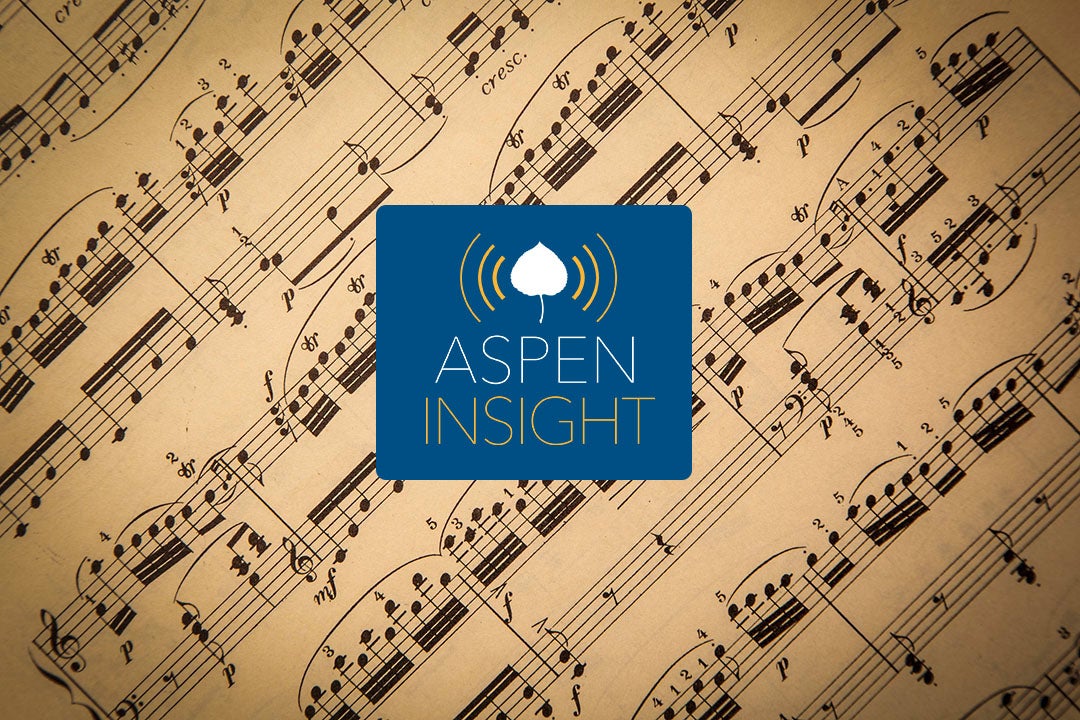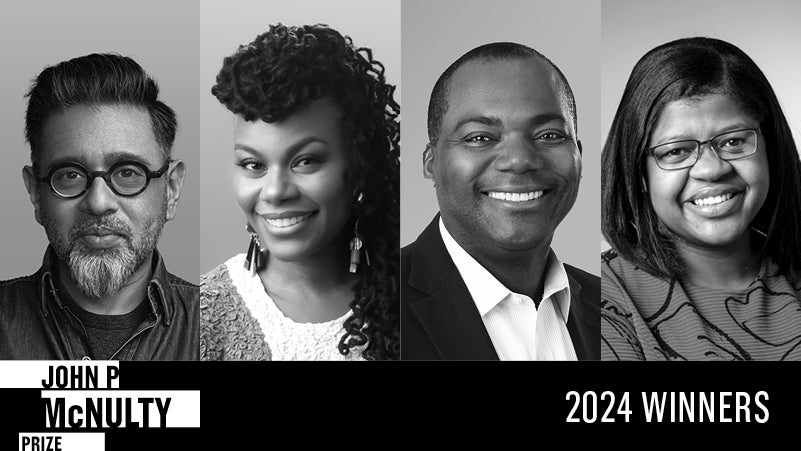As a member of the Baha’i Faith, Mehrdad Baghai experienced hate and vilification as a child. He grew up in Iran where some considered the Baha’i to be untouchables. It was confusing at first, but ultimately led Baghai to wonder, “What is it that gets really wonderful, smart, and well-meaning people to be induced to hate each other?.” Later, his life would be devoted to eradicating hate and intolerance. On this episode of Aspen Insight, hear from two leaders working to heal wounds in their communities, and around the world.
Listen and subscribe to the podcast from your mobile device:
from Apple Podcasts | from Spotify | from Stitcher | from RadioPublic
In November, Baghai was awarded the John P. McNulty Prize in New York City. The John P. and Anne Welsh McNulty Foundation is a partner of the Aspen Institute. Baghai received the prize for his work to reframe young people’s thinking around race and justice with High Resolves, an organization he started with his wife Roya. The program aims to build a more inclusive, just, and optimistic world by educating young people to become strong citizens and leaders. The program, in more than 500 schools in Australia (and growing worldwide), uses an immersive curriculum that requires students to examine their world views.
With High Resolves, Baghai wants to flip the way people currently think about people different from them. Right now, he says, hate is accepted as a new normal. “You’re not born hateful. You’re not born a racist. You’re not born thinking that someone with a different skin color or set of beliefs, is inferior to you. You learn that. And if you can learn it, you can unlearn it.”
In a different part of the world, McNulty Laureate Hope Azeda is using art to help a country heal. In the 1990’s, her family escaped rising ethnic tensions in Rwanda. She returned after the 1994 genocide, and it was devastating. “Going back to Rwanda, I found that all my relatives—none of them survived except for a cousin of mine, and my father’s property had been burned.” To pick up the pieces for herself and her country she started the Ubumuntu Arts Festival, held at the Kigali Genocide Memorial Centre. Through workshops, performances, panel discussions, and more, participants explore the trauma of conflict and our shared humanity.
Mehrdad Baghai and Hope Azeda are two of four 2018 McNulty Laureates. As the winner of the Prize, Baghai won $100,000 to further his venture. Hope Azeda won $25,000 to help her effort. Baghai is a Henry Crown Fellow at the Aspen Institute. Azeda is part of the Institute’s Africa Leadership Initiative. Both fellowships are part of the Aspen Global Leadership Network.
Find out more by downloading the episode and subscribing to the podcast by searching for “Aspen Insight” on Apple Podcasts, Spotify, RadioPublic, or Stitcher. Share your thoughts and join the conversation on social media using #AspenInsight.
For more information about the topics discussed in this episode, visit the links below:


